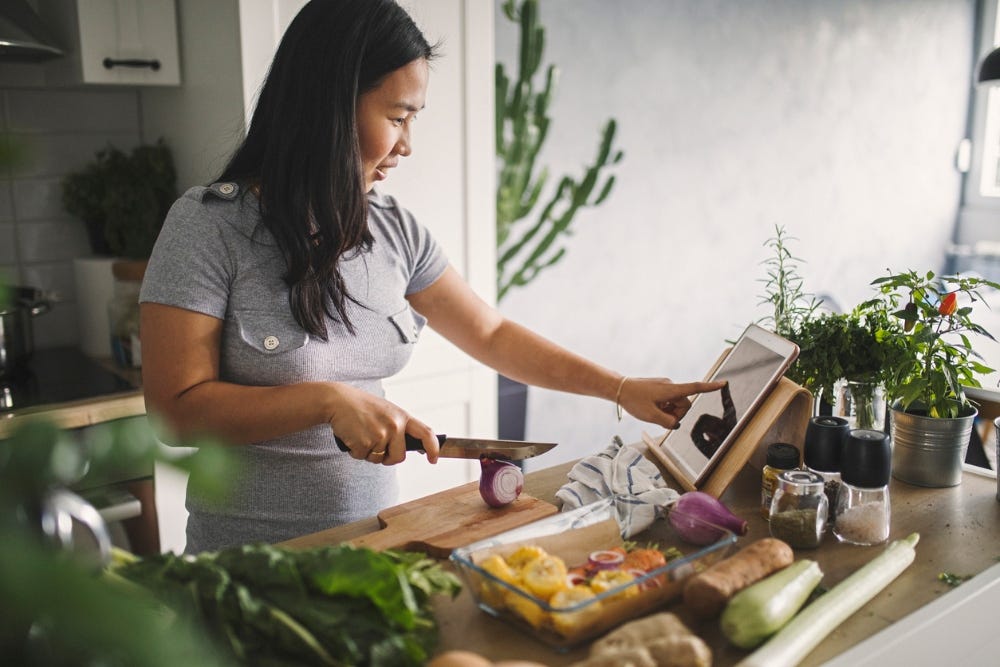How Food & Cooking Will Change in the Future

Especially in light of the pandemic, the traditional dining-in model has drastically changed in recent years. More people are cooking at home, but they are cooking in different ways that cater to their specific diets, tastes, budgets and desires. Technology has made that easier. In a talk moderated by The Spoon’s Michael Wolf, panelists Robin List of Suvie, Khalid Aboujassoum of Else Labs, Dr. Dochui Choi of Samsung and Kai Schaeffner of Thermomix discussed what’s coming next for food technology.
Why is it so hard for kitchen technology to catch on?
The microwave was arguably the most revolutionary piece of kitchen technology in modern times. The steam oven is of course popular, and air fryers are really catching on, but nothing has completely altered the way we cook in recent years like the microwave did in the past.
According to the panelists, cooking — and eating — can be a painfully personal thing, and that’s why it’s difficult for just one appliance or technology to become revolutionary in a mainstream way. Some people hate cooking and want the minimal amount of work for maximum results, while on the other side of the spectrum, others cling to history and tradition and are hesitant to adopt new cooking techniques. There are those who enjoy cooking and don’t want necessarily a faster method, but a more efficient one with better results is always welcome. However, it’s the personalization that consumers are looking for today.
Creating Healthier Meals
Today we have the knowledge and data to help people live healthier, longer lives with a diet especially catered just to them. Food technology companies can use feedback from their consumers to know what people are eating and what tastes they prefer. According to List though, what we lack is a means to bring it all together quickly.
“We need to combine the technology to enable people to have healthier, tastier meals,” List said, citing how Americans tend to lack fish in their diet but might eat more of it if they knew how to cook it better.
Prospective small countertop appliances filling this gap include Suvie, which refrigerates ingredients until cooking time and will automatically cook the inserted food when the preset time is reached. There is also the Thermomix, which guides users through recipes with its one pot mixer and scale, where it can chop, sauté, caramelize and more.
The Look of the Future Kitchen
The kitchen has generally stayed about the same in terms of functionality throughout the years. The biggest change has been in the last thirty years, and especially recently, when it evolved to becoming the heart of the home and the center of gatherings. However, will it retain this identity in the future?
Dr. Choi argued that it’s possible the kitchen might not need to exist at all in ten years. After all, there are places like Hong Kong, where the steep rent means smaller apartments that often completely lack kitchens. Instead, many people living there order in all of their meals.
“Growing up in Korea, I lived twenty years without electricity,” said Dr. Choi. “We ate healthy foods without refrigeration for that long because of the innovative, thoughtful ways we preserved food. I see a future where refrigeration is unnecessary.”
What is definite is that consumers will always want a space, if they want one at all, that caters to their specific level of cooking. Personalization is king in the future of kitchen technology.


Comments
Post a Comment